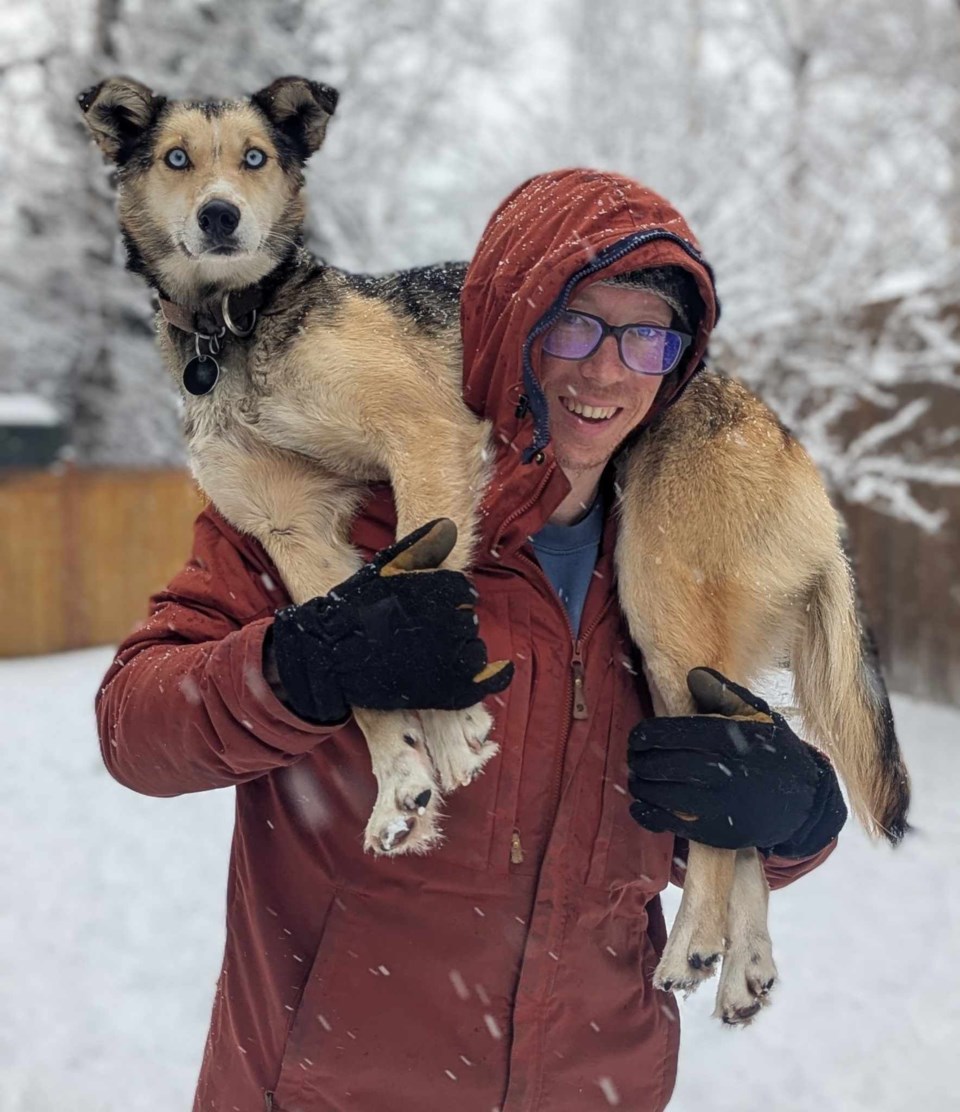YORKTON - In terms of both historic and notable sporting events the famed Iditarod Trail Sled Dog Race has to be high on the recognition list.
Commonly simply known as The Iditarod, the event is an annual long-distance sled dog race held in Alaska in early March. It travels from Anchorage to Nome. Mushers and a team of between 12 and 16 dogs, of which at least 5 must be on the towline at the finish line, cover the distance in 8–15 days or more. The Iditarod began in 1973 as an event to test the best sled dog mushers and teams but evolved into today’s highly competitive race.
This year one musher and his team stood out as just a bit different, if not out right unique.
Justin Olnes ran the race with a team made up almost entirely of dogs from rescues in and around Fairbanks where he and his partner Kailyn Olnes own and operate the aptly named ReRun Kennel.
Justin told Yorkton This Week rescuing dogs really started with Kailyn who he said saw it “more as a noble mission,” before he became involved.
In his case after graduating he started to think about becoming a musher, and was initially just looking for a few sled dogs “to pull me around . . . a team to go around and have some fun with.”
A passion would develop, Kailyn taking on the big race with a team of dogs borrowed from other mushers a couple of years ago, and then they began looking more seriously for their own dogs.
Justin said they quickly liked the idea of rescuing dogs, which meant “supporting dog rescues as much as possible.”
They found quite a few dogs would end up in rescues and they began to gather together those “that looked like they had a lot of potential.”
Once at their kennel the work really began as they had to train the varied rescues dogs starting with simply accepting being in harness, then running as part of a team, and ultimately readying to take on the long distance run which is the Iditarod.
Justin said it has become more challenging to find dogs, adding back in the 1980s through to 2000 there were more mushers and kennels, and that meant a greater number of dogs found their way to rescues for various reasons. Fewer mushers today has reduced the number.
The reasons, added Justin can be quite different. For example a dog, “might not be fast enough, or be a good fit in a team, or doesn’t like running longer distances.”
“These days the intake of sled dogs into the system has slowed to more of a trickle,” he said.
That said there are still more sled dogs in rescues than ReRun Kennel can run itself, but they still often take excess dogs on foster, and then work to try to re-home the ones not quite having the race potential they seek.
“We’re really careful about what dogs we take in to be ours,” said Justin.
This year Justin decided to run the Iditarod, his team of 16 being 75 per cent rescue animals, the core group being a team he was developing for three years.
With the team largely untried in such a challenging race Justin said the start of the Iditarod was a touch nerve wracking “having a lot of dogs without Iditarod experience.”
That said Justin said he focused on a simple thing “to do the best we can. If the dogs said that’s enough for us I’d be OK with that.”
Early in the race things went well as Justin and his team worked a plan of balanced time on the trail and rest periods. Then due to race staffing issues Justin said he broke with the plan, over raced the team, and when he recognized that he pulled the team.
While disappointing, Justin said it was the correct decision and now he looks forward to 2026.
“I think about what this team will be next year,” he said, adding the experience gained will be as asset to build on.
Along the way the rescue dog team garnered a lot of attention, Kailyn “inundated with messages” on social media as Justin raced, and Justin dealing with people wanting time at each stop on the course.
“It was actually a little overwhelming,” he said.
But ultimately it was a platform to talk about rescue dogs needing a home and that was a very good aspect of the interest, said Justin.






